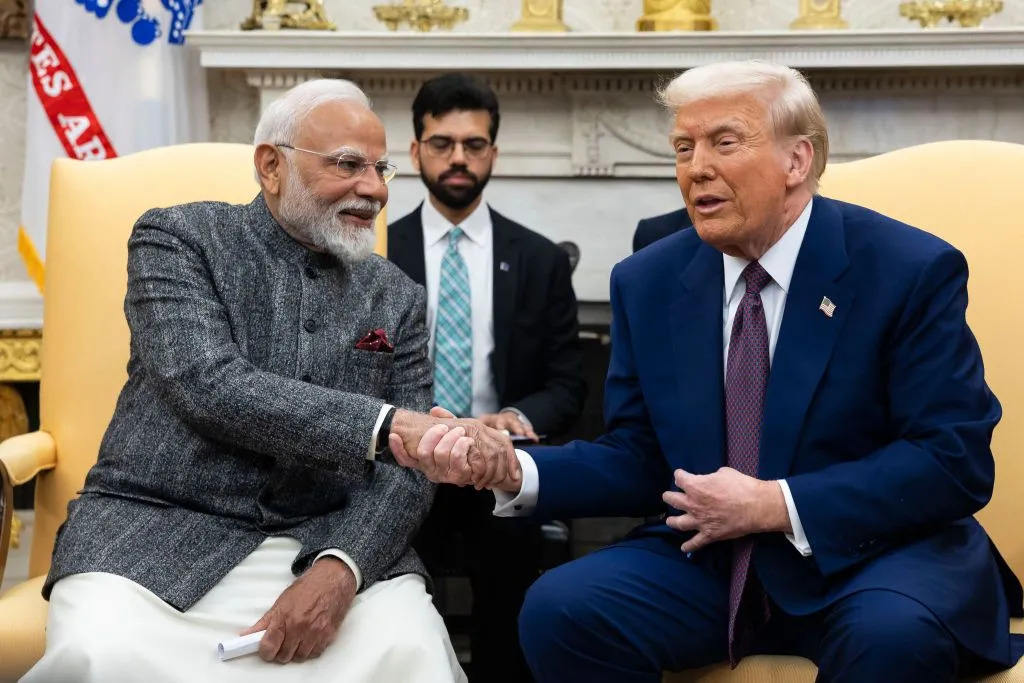“Modi and Trump Commit to Doubling Bilateral Trade by 2030”
Indian Prime Minister Narendra Modi’s recent visit to Washington, D.C., marked a significant deepening of U.S.-India relations, with key discussions centered on trade, defense, and energy cooperation.
Both nations have committed to negotiating the initial segments of a trade agreement by fall 2025, aiming to double bilateral trade to $500 billion by 2030. India has announced reductions in certain tariffs, a move welcomed by the U.S., as both sides seek to resolve existing trade disputes.
The U.S. plans to significantly increase military sales to India, including advanced weapons systems and the potential provision of F-35 fighter jets. A new 10-year framework for the U.S.-India Major Defense Partnership has been proposed, focusing on cooperation across air, land, sea, space, and cyberspace domains.
India has agreed to increase its imports of U.S. oil and gas, aiming to raise purchases to $25 billion in the near future from $15 billion last year. This initiative is part of a broader strategy to reduce the trade deficit and strengthen energy security.
Both leaders emphasized the importance of a free, open, and peaceful Indo-Pacific region. They plan to launch new initiatives to strengthen regional security and cooperation, underscoring the strategic significance of their partnership.
The U.S. and India have agreed to aggressively tackle illegal immigration and human trafficking by enhancing law enforcement cooperation. India has expressed readiness to repatriate its citizens residing illegally in the U.S., with recent actions including accepting 104 migrants repatriated on a U.S. military plane.
In a move likely to bolster bilateral ties, the U.S. has approved the extradition of Tahawwur Rana, a Chicago businessman accused of involvement in the 2008 Mumbai attacks, to India. This decision underscores the commitment of both nations to combating terrorism.
Notably, discussions on human rights and the treatment of minorities were absent from the meeting’s agenda, reflecting a focus on strategic and economic interests.

